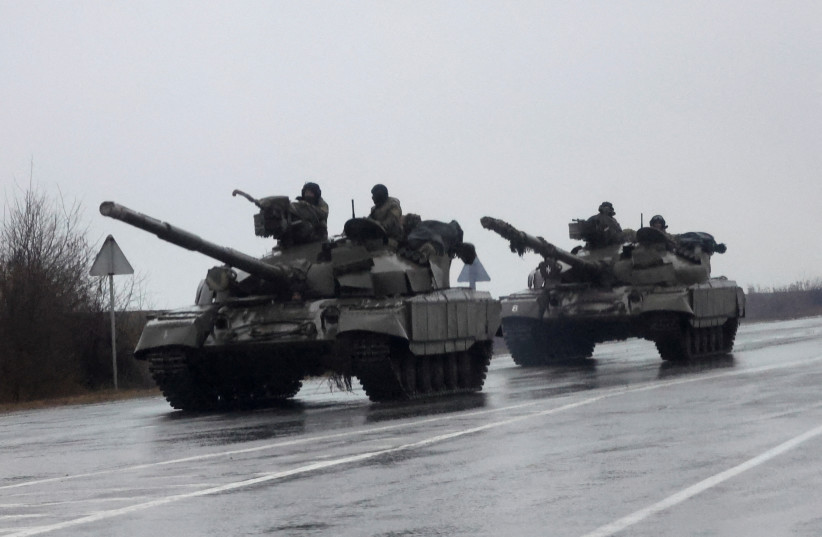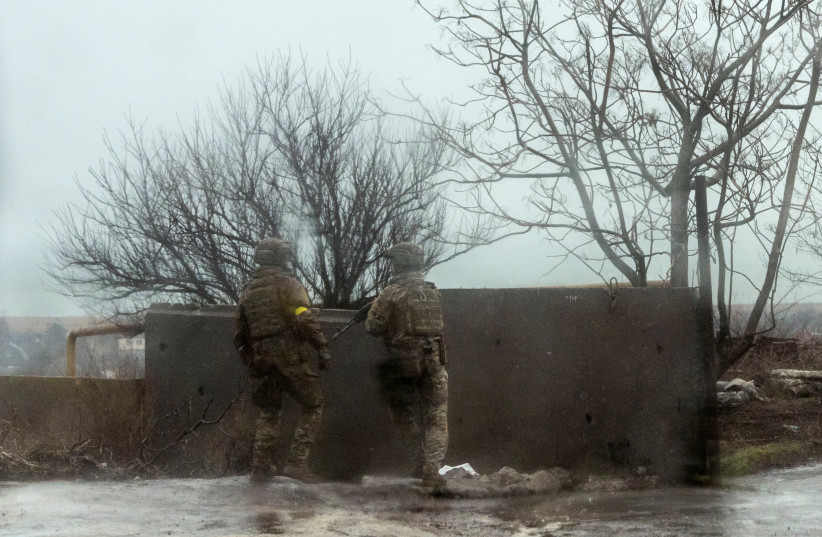The war in Ukraine is an event the likes of which the West has not seen in decades, with yet-unknown reverberations likely to be felt around the world for years to come.
But there is already one obvious lesson for Israel: we can only rely on ourselves.
It is true that this is a refrain that comes up again and again in Israeli politics, most recently as the world negotiates an agreement with Iran that probably will not come anywhere close to reasonably protecting Israelis against a regime bent on Israel’s destruction.
“We will protect ourselves by ourselves,” Prime Minister Naftali Bennett said in an interview with The Jerusalem Post last month.
“Israel must do what it needs to do to defend itself against this extraordinary threat to its existence,” opposition leader Benjamin Netanyahu told i24 News this week.
Read more on the Ukraine-Russia War:
But in case anyone doubted it, the war in Ukraine has brought that message into stark relief.
Russia has been an ongoing threat to Ukraine, at least since 2014, and Western leaders have spoken often about opposing Russian aggression. They did place sanctions, but did not have the focus nor the will to make them really hurt Moscow for long.
In the run-up to the Russian invasion, the West stepped up the rhetoric and the sanctions, but it’s looking like too little, too late, for Ukraine.
Just a few days ago, American, German, British and European Union leaders at the Munich Security Conference applauded their “unity” in opposing Russian aggression against Ukraine.
But Ukrainian President Volodymyr Zelensky confronted them, saying that while they’re united, his country is being left to face Russia on its own.
“The architecture of world security is fragile and needs to be updated,” Zelensky said. “The rules that the world agreed on decades ago no longer work. They do not keep up with new threats. What do attempts at appeasement lead to? The question ‘Why die for Danzig?’ turned into the need to die for Dunkirk and dozens of other cities in Europe and the world at the cost of millions of lives.”

Zelensky suggested active steps that the West could have taken to try to prevent an attack, instead of punishing Russia after the fact, such as more sanctions, sending more advanced weapons to Ukraine, greater financial support, and more.
A Russian invasion is not just an attack on Ukraine, he said, but on the world.
“We will defend our land with or without the support of partners,” Zelensky stated. “These are not noble gestures for which Ukraine should bow low. This is your contribution to the security of Europe and the world, where Ukraine has been a reliable shield for eight years.”
Just change the name Zelensky to Bennett, and the countries to Israel and Iran, and the messages are very similar, from the demands for more sanctions and better weapons down to the World War II appeasement comparison, and being a vanguard against a broader threat: Islamic extremist terrorism in the Middle East and an expansionist Russia in Europe.

The comparison is not one-to-one, of course. Most importantly, the US-Israel relationship, including its military and intelligence cooperation, is very strong.
Russia already invaded Ukraine, while there is still time to stop Iran from obtaining a nuclear weapon – though Iran is already attacking Israel through its proxies. Israel and Iran are better matched militarily, while Russia overpowers Ukraine. And Israel has access to and develops its own advanced weaponry – though the US refusal to sell bunker bombers that could have helped stop the nuclear threat years ago still smarts.
Israel also seems to generally have more success than Ukraine at getting the world’s attention, for better or for worse, though it seems likely that the “shorter, weaker” Iran deal, as Bennett called it, will be completed under the radar while the focus is on Ukraine.
Regardless of the differences, it’s very clear that the West’s appetite for taking preemptive steps to stop existential threats to its allies is lacking. That is true even if they say all the right things, like the mantra that they won’t let Iran obtain a nuclear weapon.
Russian warplanes flying over Kyiv are a reminder: Israel must always be prepared to defend itself, by itself.
